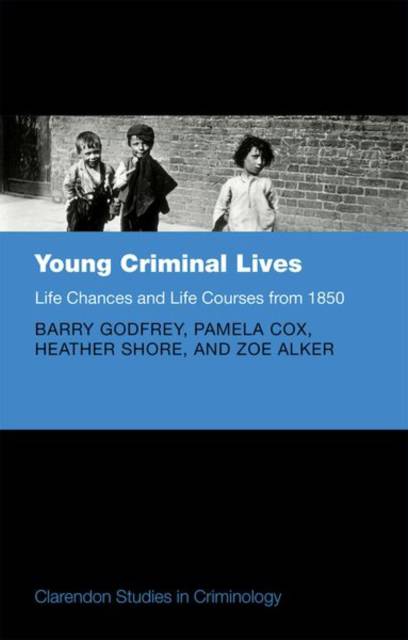
- Retrait gratuit dans votre magasin Club
- 7.000.000 titres dans notre catalogue
- Payer en toute sécurité
- Toujours un magasin près de chez vous
- Retrait gratuit dans votre magasin Club
- 7.000.000 titres dans notre catalogue
- Payer en toute sécurité
- Toujours un magasin près de chez vous
Young Criminal Lives: Life Courses and Life Chances from 1850
Barry Godfrey, Pamela Cox, Heather Shore, Zoe Alker
116,45 €
+ 232 points
Description
Young Criminal Lives is the first cradle-to-grave study of the experiences of some of the thousands of delinquent, difficult and destitute children passing through the early English juvenile reformatory system. The book breaks new ground in crime research, speaking to pressing present-day concerns around child poverty and youth justice, and resonating with a powerful public fascination for family history.
Using innovative digital methods to unlock the Victorian life course, the authors have reconstructed the lives, families and neighbourhoods of 500 children living within, or at the margins of, the early English juvenile reformatory system. Four hundred of them were sent to reformatory and industrial schools in the north west of England from courts around the UK over a fifty-year period from the 1860s onwards. Young Criminal Lives is based on one of the most comprehensive sets of official and personal data ever assembled for a historical study of this kind. For the first time, these children can be followed on their journey in and out of reform and then though their adulthood and old age. The book centres on institutions celebrated in this period for their pioneering new approaches to child welfare and others that were investigated for cruelty and scandal. Both were typical of the new kind of state-certified provision offered, from the 1850s on, to children who had committed criminal
acts, or who were considered 'vulnerable' to predation, poverty and the 'inheritance' of criminal dispositions.
The notion that interventions can and must be evaluated in order to determine 'what works' now dominates public policy. But how did Victorian and Edwardian policy-makers and practitioners deal with this question? By what criteria, and on the basis of what kinds of evidence, did they judge their own successes and failures? Young Criminal Lives ends with a critical review of the historical rise of evidence-based policy-making within criminal justice. It will appeal to scholars and students of crime and penal policy, criminologists, sociologists, and social policy researchers and practitioners in youth justice and child protection.
Using innovative digital methods to unlock the Victorian life course, the authors have reconstructed the lives, families and neighbourhoods of 500 children living within, or at the margins of, the early English juvenile reformatory system. Four hundred of them were sent to reformatory and industrial schools in the north west of England from courts around the UK over a fifty-year period from the 1860s onwards. Young Criminal Lives is based on one of the most comprehensive sets of official and personal data ever assembled for a historical study of this kind. For the first time, these children can be followed on their journey in and out of reform and then though their adulthood and old age. The book centres on institutions celebrated in this period for their pioneering new approaches to child welfare and others that were investigated for cruelty and scandal. Both were typical of the new kind of state-certified provision offered, from the 1850s on, to children who had committed criminal
acts, or who were considered 'vulnerable' to predation, poverty and the 'inheritance' of criminal dispositions.
The notion that interventions can and must be evaluated in order to determine 'what works' now dominates public policy. But how did Victorian and Edwardian policy-makers and practitioners deal with this question? By what criteria, and on the basis of what kinds of evidence, did they judge their own successes and failures? Young Criminal Lives ends with a critical review of the historical rise of evidence-based policy-making within criminal justice. It will appeal to scholars and students of crime and penal policy, criminologists, sociologists, and social policy researchers and practitioners in youth justice and child protection.
Spécifications
Parties prenantes
- Auteur(s) :
- Editeur:
Contenu
- Nombre de pages :
- 256
- Langue:
- Anglais
- Collection :
Caractéristiques
- EAN:
- 9780198788492
- Date de parution :
- 13-01-18
- Format:
- Livre relié
- Format numérique:
- Genaaid
- Dimensions :
- 218 mm x 145 mm
- Poids :
- 476 g







